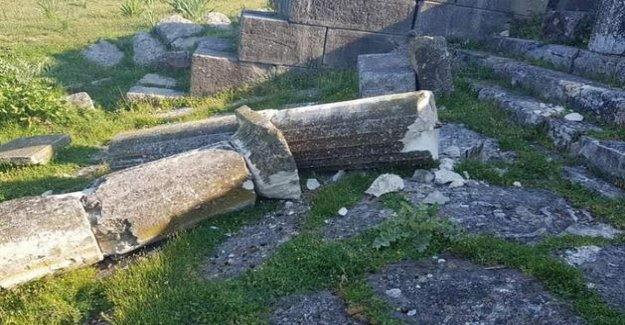The memory of humanity defiled by "barbarians". A monument of the ancient Apollonia of Illyria, near Fieri in Albania, has been vandalized, causing damage deemed "irreparable" by the director of the archaeological site according to the Albanian Daily News. On the site, classified world heritage by Unesco, the ancient marble columns of the nymphaeum have been knocked down and broken.
read also : Thunders popular after the destruction of the national Theatre albanians In ancient Greece, the nymphaeum was a sanctuary dedicated to the nymphs in the form of a basin receiving a source regarded as sacred. Originally, these monuments were natural caves assigned as habitations to the local nymphs by the tradition.
Ilir Meta, the president of Albania has called "the barbarian" this act of vandalism, and sentenced. As at the date of this destruction is discovered late, the Albanian authorities argue that it had to occur during the containment caused by the epidemic of sars coronavirus.
Apollonia is the name of several Greek towns where there were temples and oracles of Apollo. The one located in Albania, Apollonia of Illyria was perhaps the most important of them. It was founded in 588 bc by Greek colonists from Corfu and Corinth, on a site inhabited by indigenous tribes illyriennes.
read more : Pompeii: a british tourist tries to steal pieces of a mosaic City stand-alone and independent for many centuries, it was incorporated to the kingdom of Epirus, and then to the kingdom of Macedonia. Praised by Aristotle, Apollonia of Illyria was very well run and has thrived because of its rich agricultural hinterland and its role in the slave trade, facilitated by its important port which it is claimed that it could accommodate a hundred boats at the same time.
During the roman era, it was even a school of philosophy fame. An existence prosperous that sees its decline approach as early as the Third century when the port began to silt up following an earthquake. It will eventually be abandoned towards the end of Antiquity.
there are currently no comments on this article.
Be the first to give your opinion !












